Lose Weight Before a Tummy Tuck: Does BMI Matter for the Surgery?
Body Plastic Surgery
Abdominoplasty, commonly known as a tummy tuck, is a popular cosmetic surgery procedure that helps remove excess skin and fat from the abdomen. It is a popular choice for individuals who have lost a significant amount of weight or have undergone pregnancy and childbirth. However, not everyone is a suitable candidate for this procedure. An important factor determining eligibility for a tummy tuck is the body mass index (BMI).
Individuals with a BMI above 30 are considered obese and may be at increased risk for complications associated with tummy tuck surgery. Excess weight can strain the body's systems, potentially delaying healing and increasing the risk of complications such as infection, bleeding, and delayed wound healing.
This article will explore BMI, how it affects tummy tuck surgery, and what range is considered good for this procedure. Additionally, we will delve into the significance of maintaining an optimal BMI before and after the procedure to ensure favorable and enduring outcomes.
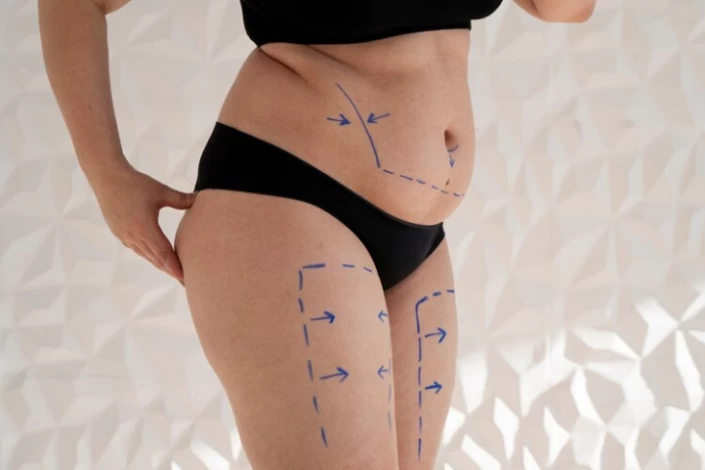
What Is Body Mass Index (BMI)?
Body Mass Index (BMI) measures body fat based on height and weight. It is calculated by dividing a person's weight in kilograms by their height in square meters. The resulting number is then compared to a chart categorizing individuals as underweight, normal, overweight, or obese.
BMI is not a perfect measure of body fat, as it does not consider muscle mass or body composition. However, it is a useful tool for screening for potential health risks associated with being overweight or obese.
Common BMI categories are:
- Underweight: BMI less than 18.5;
- Normal weight: BMI between 18.5 and 24.9;
- Overweight: BMI between 25 and 29.9;
- Obesity (class 1): BMI between 30 and 34.9;
- Obesity (class 2): BMI between 35 and 39.9;
- Extreme obesity (class 3): BMI of 40 or higher.
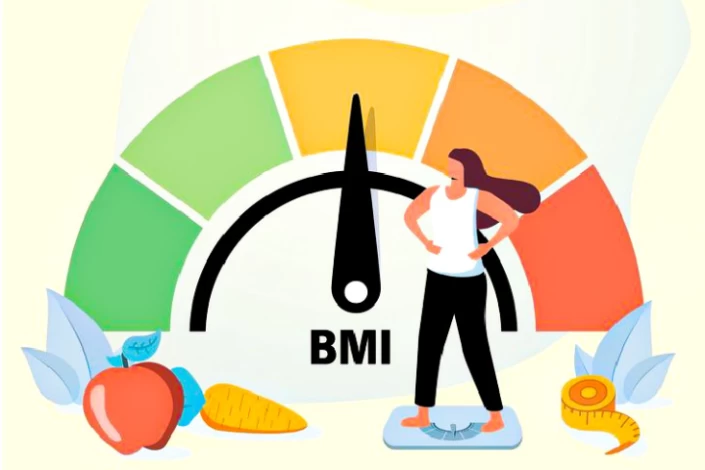
Do I Need to Lose Weight Before Tummy Tuck Surgery?
Whether or not you need to lose weight before a tummy tuck depends on your circumstances and goals. A lower BMI is generally preferred for tummy tuck surgery, as it can help reduce the risks of complications and improve the overall outcome of the procedure.
A BMI of 18.5 to 30 is ideal for tummy tuck surgery. However, some surgeons may be willing to perform the procedure on patients with a BMI of up to 35 as long as they are healthy enough to undergo the surgery and have realistic expectations for the results.
The Importance of BMI on Abdominoplasty Results cannot be overstated. A patient’s Body Mass Index (BMI) is a critical factor that surgeons consider when evaluating candidacy for abdominoplasty. It is well-documented that a lower BMI can significantly enhance the surgical process and the aesthetic outcomes of abdominoplasty. Patients with a BMI within the normal range tend to have less visceral fat, which allows for more effective contouring and a greater likelihood of achieving a flat, toned abdomen post-surgery. Conversely, a higher BMI can limit the extent of visible improvement and increase the risk of post-operative issues like seroma or wound dehiscence. Therefore, maintaining a healthy BMI is crucial for both the safety and success of abdominoplasty procedures.
What Is an Ideal BMI for Tummy Tuck Surgery?
The safe BMI for tummy tuck surgery is between 18.5 and 30. However, even with a BMI of 30 or higher, you may still be a candidate for tummy tuck surgery. In some cases, surgeons may be willing to perform the procedure if they believe the potential benefits outweigh the risks. However, it is important to be aware that the risks of complications are higher for patients with a higher BMI.
If you are considering tummy tuck surgery, you must talk to your doctor or a board-certified plastic surgeon to discuss your circumstances and determine whether you are a good candidate. They can assess your BMI and other health factors to determine if you are healthy enough to undergo surgery and help you develop realistic expectations for the results.
What Are the Benefits of Maintaining an Ideal BMI for Tummy Tuck Surgery?
Maintaining an ideal body mass index (BMI) before undergoing a tummy tuck surgery offers several benefits, including:
- Reduced Surgical Risks: Patients with a healthy BMI are generally at lower risk of surgical complications such as excessive bleeding, wound healing issues, and infection. Maintaining a healthy weight can improve overall health and reduce the likelihood of anesthesia-related complications.
- Improved Aesthetic Outcomes: Patients with an ideal BMI for tummy tuck often achieve more favorable aesthetic results from tummy tuck surgery. Excess weight can lead to stretched skin and weakened abdominal muscles, and maintaining a healthy weight can help ensure that the skin has better elasticity and the underlying muscles are in good condition, leading to a more satisfying outcome.
- Faster Recovery: Individuals with a healthy BMI tend to have shorter recovery times after surgery. This is because they are generally in better physical condition, which can lead to faster healing and reduced post-operative discomfort.
- Decreased Risk of Complications: Maintaining an ideal BMI can lower the risk of surgical complications, such as bleeding and infections.
- Long-Term Tummy Tuck Results: Maintaining an ideal BMI after tummy tuck surgery can help preserve the procedure's results. Significant weight fluctuations can negatively impact the outcome of the surgery, so maintaining a stable weight is important for long-term satisfaction with the results.
Is High BMI Tummy Tuck Safe?
A high BMI tummy tuck or plus size tummy tummy tuck can be safe depending on the patient's circumstances and health factors. A high BMI can increase the risk of complications during surgery and recovery, such as blood clots, infection, and delayed wound healing.
Therefore, before proceeding with the surgery, it is crucial for patients with a maximum BMI for tummy tuck to undergo a comprehensive medical assessment. This may include blood tests, imaging studies, and consultations with other healthcare providers to ensure that the patient is in good overall health.
Additionally, the surgeon may use specialized techniques during the procedure to accommodate the patient's body size and minimize the risk of complications. These techniques may include longer incisions, liposuction, and other modifications to the standard tummy tuck procedure.
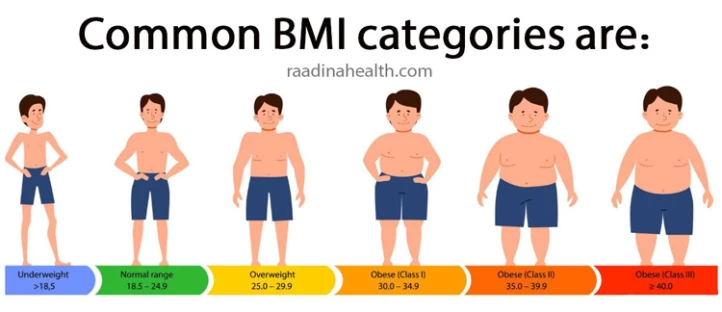
What Are the Risks of Having a Plus Size Tummy Tuck?
A plus-size tummy tuck can pose several risks, including:
- Increased risk of complications -A higher BMI is often associated with an increased risk of surgical complications, such as infection, scarring, blood clots, and poor wound healing.
- Anesthesia risks - Patients with a higher BMI may be at an increased risk of anesthesia-related complications, such as respiratory issues and cardiovascular problems.
- Poor cosmetic outcomes - Individuals with a higher BMI may have less favorable cosmetic results following a tummy tuck due to excess fat and skin, which can impact the ability to achieve a smooth, contoured appearance.
- Longer recovery time - Patients with a higher BMI may experience a longer and more challenging recovery period after a tummy tuck, including increased discomfort and a higher likelihood of post-operative complications.
- Increased risk of post-operative complications - Individuals with BMI ≥ 30 are at a greater risk of experiencing postoperative complications, such as delayed wound healing, seroma (fluid accumulation), and wound dehiscence (wound separation).
How to Lose Weight Before a Tummy Tuck?
If your BMI is too high for a tummy tuck or abdominoplasty surgery, it's important to focus on achieving a healthier weight before considering the procedure. Weight loss strategies before tummy tuck surgery include:
- Avoid crash diets and instead opt for a balanced, nutrient-rich diet that emphasizes whole, fresh foods;
- Keep in mind that healthy eating should be a long-term lifestyle choice that benefits your overall mental and physical well-being;
- Minimize consumption of high-sugar foods and opt for homemade healthy treats over store-bought options;
- Use smaller plates and eat smaller portions to help you feel full more quickly. Eat slowly and mindfully;
- Opt for low-sodium or salt-free meals to promote a healthier lifestyle;
- Prepare meals in advance to ensure you’re consuming nutrient-dense, low-sodium options;
- Avoid going long periods without eating and have a healthy snack every 2-3 hours to boost your metabolism and maintain energy levels;
- Ensure you get adequate sleep to help regulate digestion, metabolism, and emotional eating patterns;
- Combine strength training with cardiovascular exercises to build muscle, increase metabolism, and burn fat more effectively. Consult with a healthcare professional before starting a new exercise regimen, and consider working with a personal trainer;
- Drink plenty of water to support weight loss and overall health;
- Incorporate foods with high water content, such as tomatoes, watermelon, and cucumbers, into your meals to reduce overall calorie intake;
- Eat fiber-rich foods like avocados, pears, and berries to help you feel fuller for longer periods, reducing the likelihood of overeating.

What Are My Options if My BMI Is Too High?
If your BMI is too high for an abdominoplasty procedure, there are several steps you can take to move forward safely and effectively:
- Weight Loss Regimen: Begin with a healthy lifestyle that includes diet and exercise. Aim to reach a BMI within the recommended range for the surgery.
- Medical Consultation: Seek advice from a healthcare provider or a bariatric specialist who can guide you through a weight loss program tailored to your needs.
- Phased Approach: Consider a phased approach to body contouring. Some patients first opt for liposuction or a panniculectomy to remove excess fat and skin, which may help reduce BMI and improve surgical outcomes for a later abdominoplasty.
- Mini Tummy Tuck: A mini tummy tuck might be an option if you have loose skin below the navel. It is less extensive and may suit those with a slightly higher BMI.
Discussing these options with a board-certified plastic surgeon who can assess your situation and recommend the best course of action is important. Remember safety and health should always be the priority when considering cosmetic surgery.
Why Iran Is a Good Destination for Tummy Tuck?
Iran has become a popular destination for medical tourism, including cosmetic procedures like tummy tucks, due to several factors. Firstly, Iranian plastic surgeons are highly skilled and qualified, with many having trained in top international institutions. Additionally, the cost of medical procedures in Iran is often significantly lower than in Western countries, making it an attractive option for those seeking affordable cosmetic surgery. Finally, Iran is known for its high-quality healthcare facilities and modern technology, providing patients with a safe and comfortable environment for their abdominoplasty procedure and recovery.
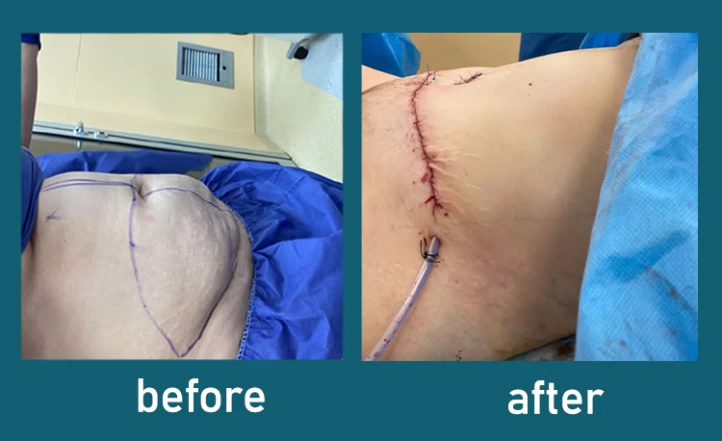
FAQS About BMI for Tummy Tuck
1) Will my BMI be a deciding factor when considering abdominoplasty?
The decision of whether you are a suitable candidate for abdominoplasty is determined on a case-by-case basis after your initial consultation. While BMI is a factor, it is not the only indicator of candidacy. Other considerations include age, desired outcome, overall health, body proportions, muscle mass, and other factors. Additionally, BMI may not always accurately reflect the body's fat amount, and alternative methods may be used to assess suitability.
2) What is the maximum BMI for a tummy tuck?
The max BMI for abdominoplasty is a BMI greater than 30 or 35.
3) Can someone with a high BMI still have a tummy tuck?
Yes, someone with a high BMI can still have a tummy tuck. However, it depends on their health factors and the surgeon's evaluation.
4) What precautions should be taken for a high BMI tummy tuck?
Precautions may include a thorough medical evaluation, specialized surgical techniques, and close monitoring during the recovery period.
5) Will a high BMI affect the results of a tummy tuck?
A high BMI can affect the results of a tummy tuck, as it may limit the amount of excess skin and fat that can be removed.
6) Can weight loss before surgery improve the safety and results of a tummy tuck?
Yes, weight loss before surgery can improve the safety and results of a tummy tuck by reducing the risk of complications and allowing for more excess skin and fat removal.
7) Can gaining weight after a tummy tuck affect my results?
Gaining weight after a tummy tuck can affect the results by stretching out the skin and undermining the effects of the surgery. Maintaining a healthy diet and exercise routine after surgery is recommended to maintain the results.
 WhatsApp
WhatsApp
 Telegram
Telegram
 Facebook
Facebook
 Email
Email







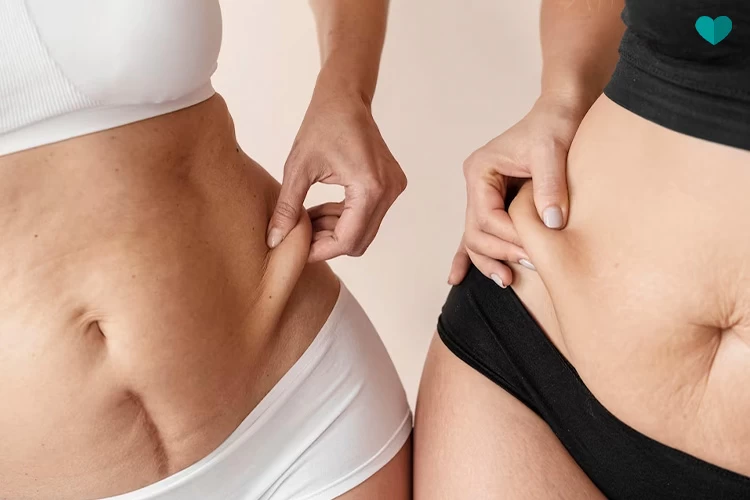









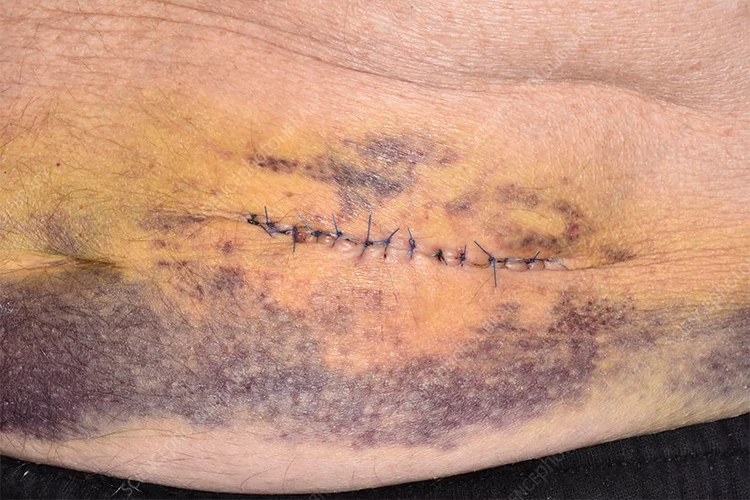


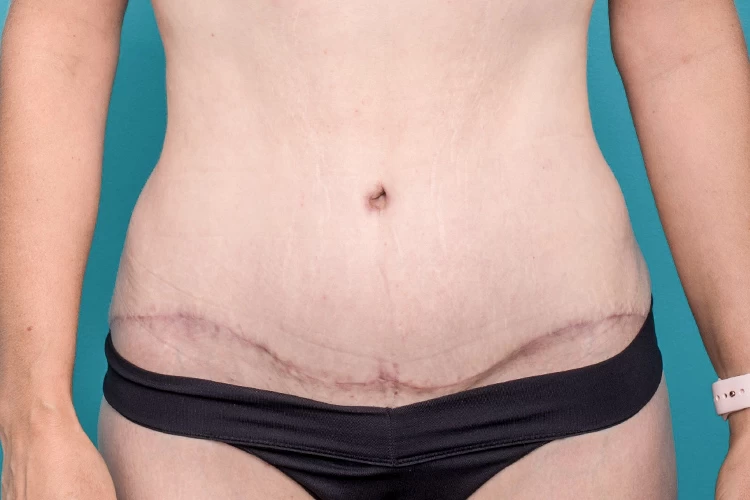
No reviews
Your comment